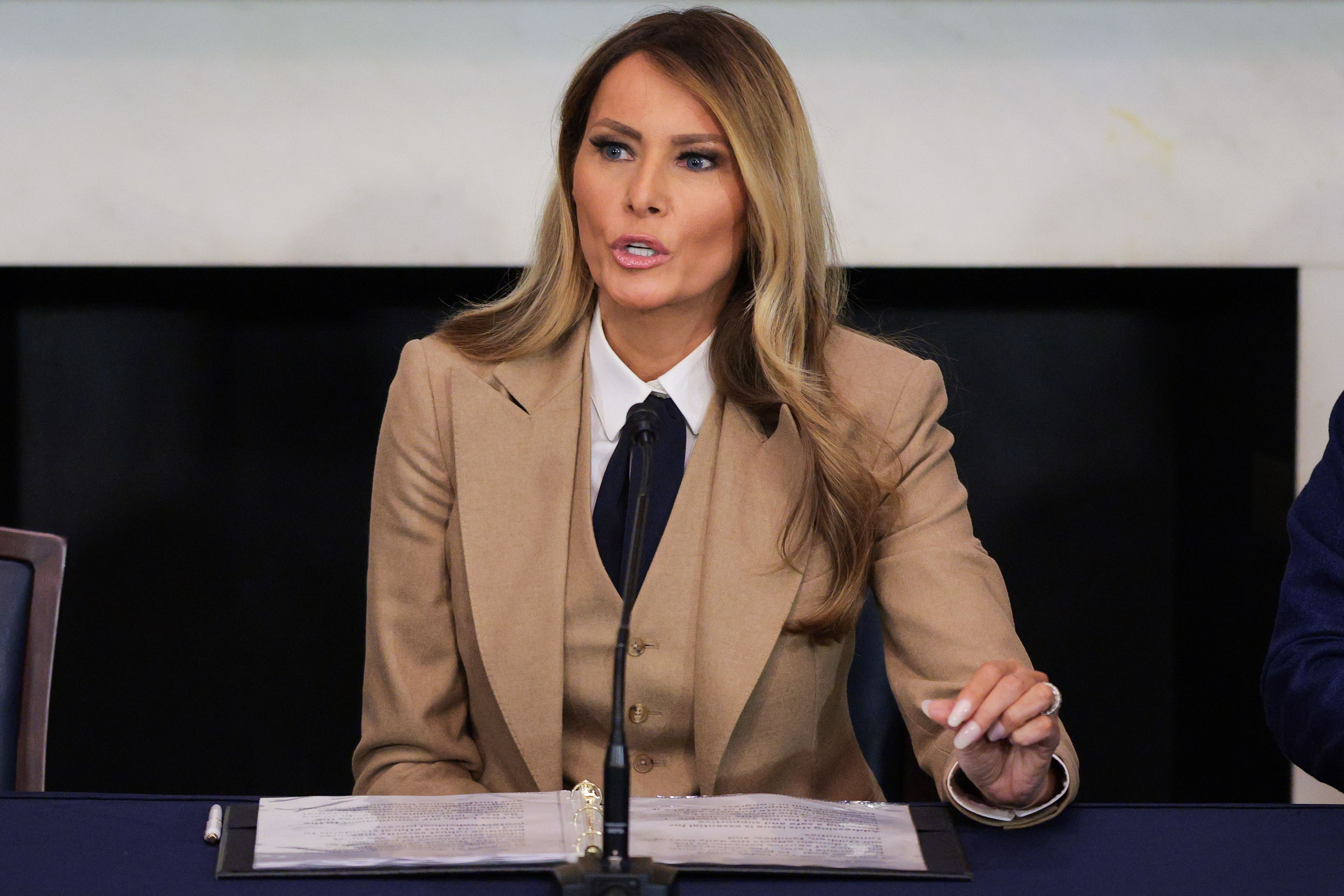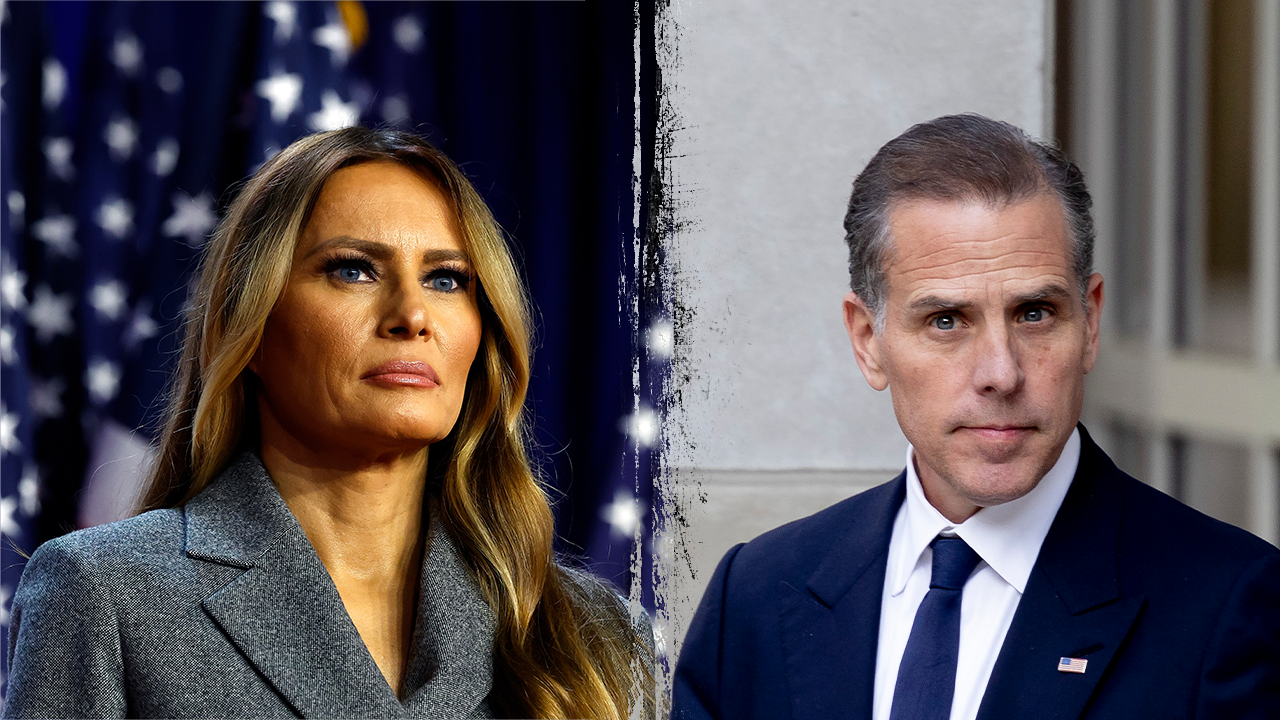Former First Lady Melania Trump is once again at the center of public attention, this time involving possible legal action connected to statements made by Hunter Biden, son of U.S. President Joe Biden. According to multiple news reports, Melania’s legal representatives have indicated that they may pursue a defamation case in response to comments that they claim were harmful and misleading.
This development highlights broader conversations in the United States about misinformation, reputational harm, and the legal mechanisms public figures can use to defend themselves. While no lawsuit has yet been officially filed in a federal court, the matter underscores how defamation law intersects with politics, free speech, and media coverage.
Reported Legal Demand
Several outlets reported that attorneys for Melania Trump sent a legal notice to Hunter Biden’s team. The letter allegedly demanded a public retraction and apology, describing certain remarks as false and disparaging. The legal language reportedly characterized the statements as “defamatory” and “inflammatory,” warning that failure to comply could result in further legal escalation.
Defamation law in the United States allows individuals, including public figures, to seek damages if they can prove that false statements caused reputational or financial harm. However, the legal threshold is high for public figures like Melania Trump. According to the U.S. Supreme Court’s decision in New York Times Co. v. Sullivan (1964), they must demonstrate “actual malice,” meaning that the remarks were made with knowledge of their falsity or with reckless disregard for the truth.

Context of the Statements
The comments in question were reportedly made during an interview involving Hunter Biden. His remarks were tied to broader discussions surrounding high-profile figures and longstanding public speculation regarding Jeffrey Epstein. It is important to note that there is no verified evidence linking Melania Trump to Epstein, and official accounts from both Melania and Donald Trump consistently explain that the couple met independently of Epstein’s social circle.
According to multiple reputable sources, including Vanity Fair and The New York Times, Donald Trump and Melania Knauss (later Trump) first met in November 1998 during a Fashion Week party in New York. The event was hosted by Italian businessman Paolo Zampolli, founder of ID Models, the agency that represented Melania at the time. Donald Trump, who had recently separated from his second wife Marla Maples, asked Melania for her phone number that evening. This account of their meeting has been consistently repeated by both Donald and Melania Trump in interviews and biographies.

Why Defamation Cases Are Complex for Public Figures
Defamation lawsuits involving high-profile individuals are legally complex. Courts often balance the right to protect reputation against the First Amendment right to free speech. Legal experts frequently point out that proving actual damages in such cases can be difficult, especially when political figures are involved.
In past high-profile cases, such as Sarah Palin’s lawsuit against The New York Times in 2017, courts have maintained the high standard for proving actual malice. Palin ultimately lost her case despite arguing that the publication harmed her reputation. This precedent demonstrates the challenge that Melania Trump would face if she decides to pursue her reported $1 billion claim.
The Broader Issue of Misinformation
The situation also reflects a wider societal concern over misinformation in the digital age. The rise of social media and online platforms has created new challenges in distinguishing fact from speculation. Public figures like Melania Trump, Michelle Obama, and Hillary Clinton have all publicly acknowledged how damaging misinformation can be for personal reputation and public service.
Organizations such as the Pew Research Center have published surveys showing that a majority of Americans consider misinformation to be a major problem in modern democracy. Public officials and private citizens alike have increasingly turned to legal remedies as a way of combating the spread of false information.

Responses and Reactions
As of now, neither the White House nor Hunter Biden’s legal team has issued an official public response addressing the reported legal letter from Melania Trump’s attorneys. Similarly, Melania Trump has not made any direct public statements beyond what has been outlined in legal correspondence reported by the press.
Public reaction to the news has been polarized, reflecting broader political divisions in the United States. Supporters of Melania Trump argue that she has the right to protect her reputation and demand accountability when false claims are made. Critics, however, point out the difficulty of proving such cases in court and question whether a lawsuit of this scale would be legally sustainable.
Historical Precedents of High-Profile Defamation Cases
Melania Trump is not the first public figure to pursue defamation claims. In 2017, she filed a lawsuit against the Daily Mail over an article that contained unverified allegations about her past. That case was settled, and the publication issued an apology, while agreeing to pay damages. This prior legal victory demonstrates that Melania Trump has previously taken action to protect her reputation when she believed it was under attack.
Other notable defamation cases include Hulk Hogan’s lawsuit against Gawker Media, which resulted in a $140 million judgment in 2016. The case ultimately bankrupted the company and reshaped conversations around media responsibility and privacy. These examples show that, while difficult, high-profile defamation cases can succeed under the right legal conditions.

Conclusion
At present, Melania Trump has not filed an official lawsuit against Hunter Biden, but reports of her legal team preparing for potential action underscore how seriously she views the alleged defamatory remarks. The case, if pursued, would spotlight ongoing debates about free speech, political discourse, and the power of misinformation in shaping public opinion.
Defamation law is designed to strike a balance between protecting individuals from reputational harm and safeguarding the principles of free expression. Whether Melania Trump decides to move forward with litigation remains to be seen, but the conversation her reported legal threat has sparked reflects broader societal concerns about truth, accountability, and the consequences of false statements in public life.
